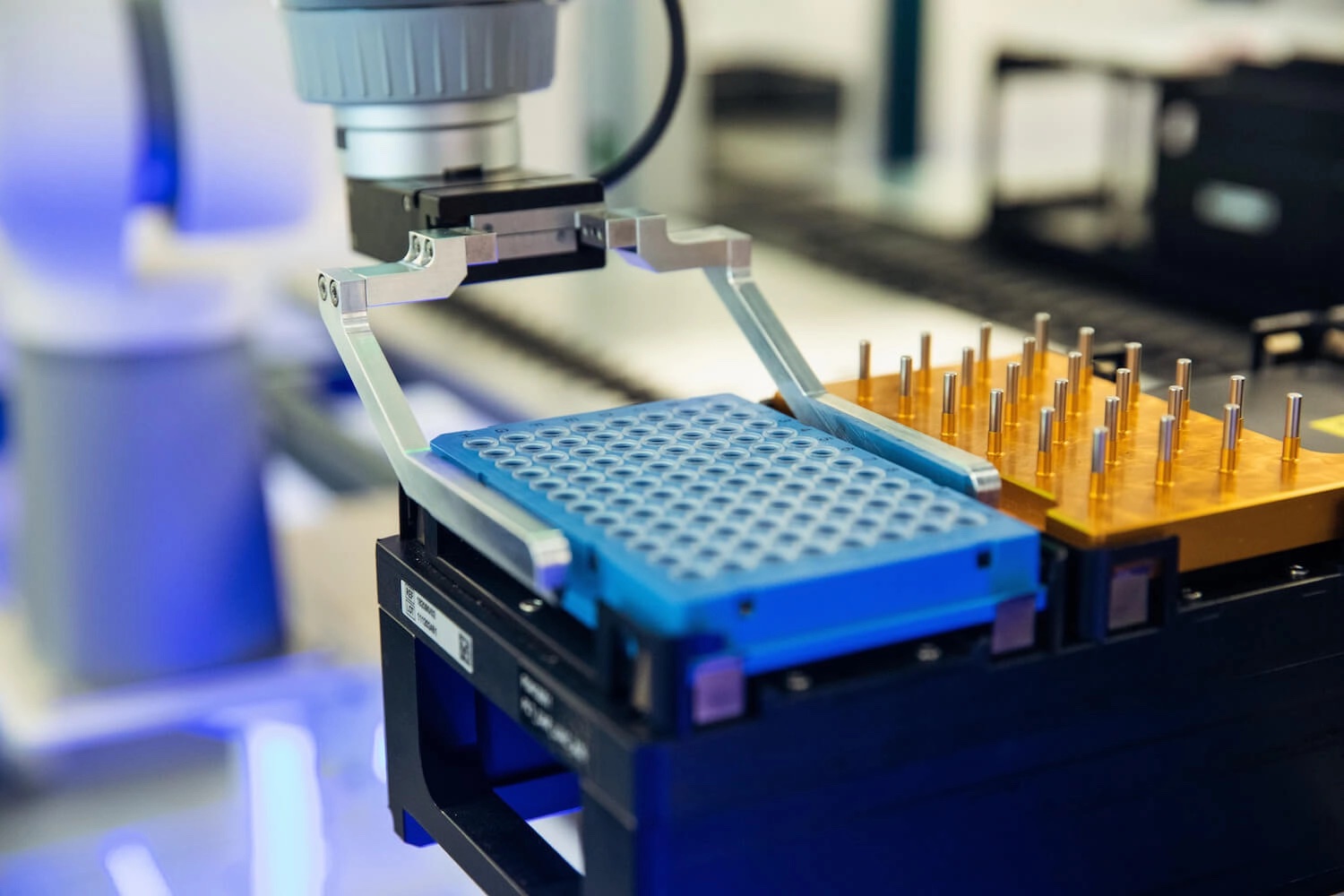Channels
Special Offers & Promotions
Automata partners with The Francis Crick Institute on integrated automation for genomics

Integrated automation will support the Crick’s cutting-edge advanced genomics laboratory with greater walkaway time, R&D flexibility and data quality than ever before.
Automata, a leading automation company powering life sciences labs, has announced it is partnering with the Advanced Sequencing Facility (ASF) at The Francis Crick Institute, a world-leading laboratory at the forefront of genomics, to unlock the power of open, integrated automation for genomics sample preparation.
The partnership is based on the premise that automation can unlock a step change in the potential of genomics labs. Genomics sample preparation workflows are ideally suited for automation given the need for robustness and scalability, and together, the teams are automating three workflows to decrease manual touchpoints, increase throughput and optimise R&D flexibility.
Jerome Nicod, Head of the Advanced Sequencing Facility at the Francis Crick Institute comments: “At the ASF, we believe integrated automation is the path forwards in the field of genomics, and the results we have been seeing so far from the Automata platform support this. The major benefit of our walkaway workflows is the ability to prepare samples and generate data rapidly, accelerating the pace of discoveries at the Crick. This includes the validation of CRISPR genome editing, the extraction of genetic material from fixed tumour samples for cancer research and genomic surveillance of the COVID-19 pandemic.”
Automating three of the lab’s critical workflows
In close collaboration, the teams have completed two walkaway workflows, with a further workflow in progress. These workflows use the first version of Automata’s lab bench solution, made up of four laboratory instruments, six benches and four robots.
- Amplicon Library Preparation - an assay requiring rapid turnaround time, typically for validation of CRISPR modifications by sequencing;
- FFPE RNA Extraction - the process of extracting RNA from formalin-fixed paraffin-embedded tissues;
- COVID-19 Sequencing - the globally-used ARTIC protocol to prepare samples for the sequencing of SARS-CoV-2 genomes
Applying lab automation to these workflows has already eliminated the need for nearly all manual touchpoints, unlocked days of walkaway time and improved sample quality.
Open, integrated automation helps labs to scale
Until now, automation in genomics labs has demonstrated limited capacity. It has tended to mean a series of specialised instruments still reliant on humans for the repetitive manual work of moving consumables between them and waiting for processes to finish. This has limited the ability for labs to scale; restricted scientists' true ‘walkaway time’ from the bench; locked trained lab staff into repetitive manual tasks; and has therefore still been prone to manual error and contamination.
Today, cutting-edge open, integrated automation solutions have the power to help laboratories scale. Benchtops can be physically and digitally connected such that entire workflows become seamless automated processes, with built-in versatility to build and edit multiple different workflows. Platforms can be made to be collaborative - able to work alongside humans - and to interact with the present range of equipment in a laboratory.
With Automata’s solution, the ASF is parallelising multiple workflows to optimise flexibility, throughput and reliability. Jerome Nicod, at The Francis Crick Institute adds: “It is our close partnership with the Automata team that has driven this success, with a dedicated field application scientist and field application engineer working closely with our laboratory scientists to optimise the deployment at every stage.”
A next-gen R&D partnership
As part of the collaboration between The Francis Crick Institute and Automata, the Crick enjoys early access to Automata demos, and is a key stakeholder in new product development. Automata is able to use the system to test new software and learn from user feedback and platform metrics.
Mostafa ElSayed, CEO & Co-Founder of Automata, comments: “We are thrilled to be partnering with The Francis Crick Institute at the cutting-edge of advanced genomics. In particular, we are excited to be unlocking true walkaway time for leading scientists at the Crick, who can now spend their time focused on new possibilities in the field to accelerate their pursuit of progress. We look forward to continuing to work closely with the Crick to shape the future of integrated automation for genomics.”
About The Francis Crick Institute
The Francis Crick Institute is a biomedical discovery institute dedicated to understanding the fundamental biology underlying health and disease. Its work is helping to understand why disease develops and to translate discoveries into new ways to prevent, diagnose and treat illnesses such as cancer, heart disease, stroke, infections, and neurodegenerative diseases.
An independent organisation, its founding partners are the Medical Research Council (MRC), Cancer Research UK, Wellcome, UCL (University College London), Imperial College London and King’s College London.
The Crick was formed in 2015, and in 2016 it moved into a brand new state-of-the-art building in central London which brings together 1500 scientists and support staff working collaboratively across disciplines, making it the biggest biomedical research facility under a single roof in Europe.
Automata is the leading robotics and automation company powering the laboratories of the future. Our automated technology enables new and improved processes, empowers scientists with transformed ways of working and delivers faster translation of results from ‘bench to bedside’. Our Lab Automation Platform meets labs where they are on their automation journey, and we are the trusted partner to improving efficiencies and freeing scientists to work on new and innovative discoveries.
We are trusted by customers including trusts within the NHS, and are supporting advancements across Core Testing Labs, Academic Institutes, CDMOs, Pharmas and Biotechs.
Media Partners


